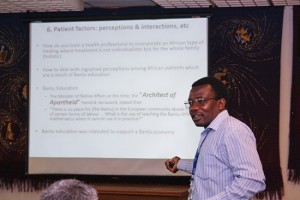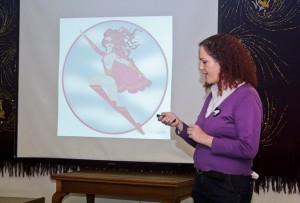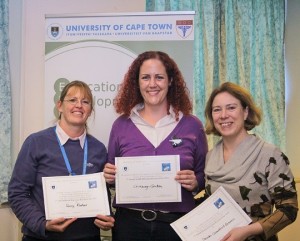The EDU offers courses in health professional education that are structured to suit a variety of professionals needs. We provide continuing professional development opportunities and an accredited programme for colleagues who teach UCT Health Sciences Students.
New Appointees’ Orientation Programme (NAOP)
The New Appointees Orientation Programme (NAOP) is a CPD accredited short course, designed to give an orientation to the various teaching roles to anyone who teaches under/post graduate UCT health sciences students. All members of clinical departments i.e. new registrars, consultants on joint staff and more senior staff who teach undergraduate are welcome to attend.
Teaching Learning and Assessment (TLA) Modules 1 & 2
This is a short course which is ideally suited for teaching and clinical staff who find it difficult to leave their teaching and service commitments for long periods but want to stay informed of trends in teaching, learning and assessment.
Module 1 aims to prepare educators of health sciences students to facilitate learning, through developing their knowledge base of educational principles as well as supporting the integration of the concepts learned.
Module 2 centres on Assessment of Student Learning.
Innovative Teaching using Technology (iTuT)
This CPD course is designed for educators, clinicians and teaching professionals who would like to integrate e-learning technologies into their teaching strategies. It may also be of general value to those who are interested in learning more about some of the most commonly used technologies, or would like to implement them in their interaction with students but are not sure how to do so. This course is aimed at individuals who are not experienced users of e-learning technologies.
Postgraduate Diploma in Health Professional Education
The Department of Health Sciences Education in the Faculty of Health Sciences offers a Postgraduate Diploma in Health Professional Education. This accredited programme will enable educators of Health Sciences students to reflect critically on the theory and practice of teaching, learning, assessment and curriculum development in Primary Health Care-led health systems and curricula.
MPhil in Health Sciences Education (by dissertation)
The Department of Health Sciences Education (HSE) in the Faculty of Health Sciences offers this programme aims to educate and train researchers from diverse disciplinary and professional backgrounds, enabling them to understand and research complex issues and challenges pertinent to HSE, particularly in resource-constrained environments.
You will be equipped with appropriate in-depth theoretical knowledge and the methodological skills necessary to undertake rigorous research at an advanced level.
Admission requirements:
PGDip HPE or equivalentCurrent employment in health sciences education . Students may be required to attend an educational research methods course and other coursework as appropriate to the topic of the dissertation, depending on their prior knowledge and experience.
Deadline for applications: 30 September
PhD in Health Sciences Education:
The Department of Health Sciences Education in the Faculty of Health Sciences offers this programme which aims to equip candidates to undertake research at the most advanced level, focussed on the features and challenges of HSE, particularly in resource constrained environments.
Admission requirements:
Candidates may be required to attend an educational research methods course and other coursework as appropriate to the topic of the dissertation.
Contact Us
Department of Health Sciences Education
Faculty of Health Sciences
University of Cape Town
Observatory, 7925
South Africa
Tel: +27 – 21 – 650 5426
Email: Dumisani.Sotshantsha@uct.ac.za




